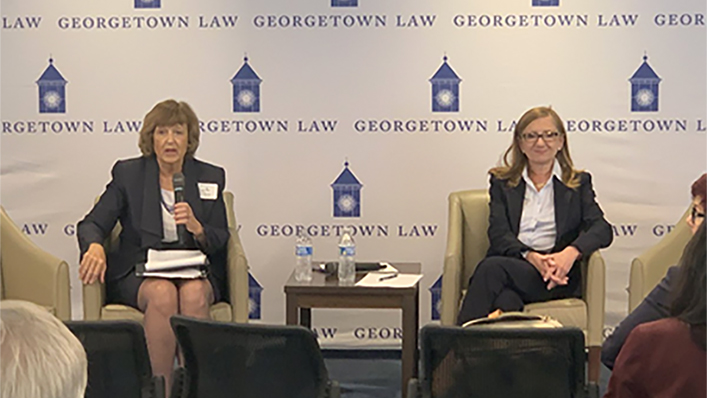
“Making trade more inclusive is not just morally right, it is also in everyone’s economic self-interest,” DDG González said, adding that “WTO members already have a practical, pragmatic and powerful tool to make trade more diversified, markets less concentrated, and economies more resilient — it is called the Trade Facilitation Agreement.”
The Agreement, which entered into force in 2017, contains provisions for expediting the movement, release and clearance of goods, including goods in transit. It also contains provisions for technical assistance and capacity building to assist developing and least developed countries in implementing the Agreement.
Noting that the Trade Facilitation Agreement’s implementation has boosted trade by more than USD 230 billion over the past few years, DDG González said that “accelerating the adoption of trade-facilitative measures, including the digitization of border procedures, will ensure that more small and women-owned businesses in more countries can reap the benefits of trade.”
She added that “this work needs to go hand-in-hand with meaningful steps to narrow the USD 1.7 trillion annual trade financing gap, which remains a major hurdle to achieve inclusive trade.”
DDG González called on governments to work together to bring trade policies, regulations and standards up to speed with the reality of the globalized services and digital economies.
“Rapidly growing services trade, especially services delivered through digital means, is already resulting in major gains for female and young workers and entrepreneurs, as well as small businesses,” she said. “Joining services value chains has huge potential to open up opportunities for scale, innovation and export diversification, especially for poor, vulnerable and landlocked countries,” she added.
DDG González said that “there can be no inclusive trade without a fair climate transition and there can be no fair climate transition without globally integrated markets.” She called on WTO members to do more to promote greater coherence across climate standards and to avoid green protectionism. She also called on them to support the capacity of small businesses, women and poor rural communities to meet increasingly stringent climate standards so that they can be part of the clean supply chains of the future.
“In a segmented market, the cost of green technologies increases, the opportunities for green investment dwindle, and the incentives for green innovation weaken,” DDG González said, adding that “this not only hurts developing countries the most, but also slows down the climate transition.”
Noting that WTO members are taking steps to advance trade inclusivity, DDG González said that “the ongoing reform of the WTO provides many additional opportunities to take a big leap forward”.
“In this, I am encouraged by the strong interest in WTO reform shown by so many stakeholders, from business leaders to civil society and especially, the academic community,” she said. “I call on all of you to intensify your efforts to bring about the positive change that people and communities want and need.”
The “Rethinking World Trade 2023” conference was organized by Georgetown University’s Center on Inclusive Trade and Development, co-directed by Professors Jennifer Hillman and Katrin Kuhlmann.
Share
Reach us to explore global export and import deals